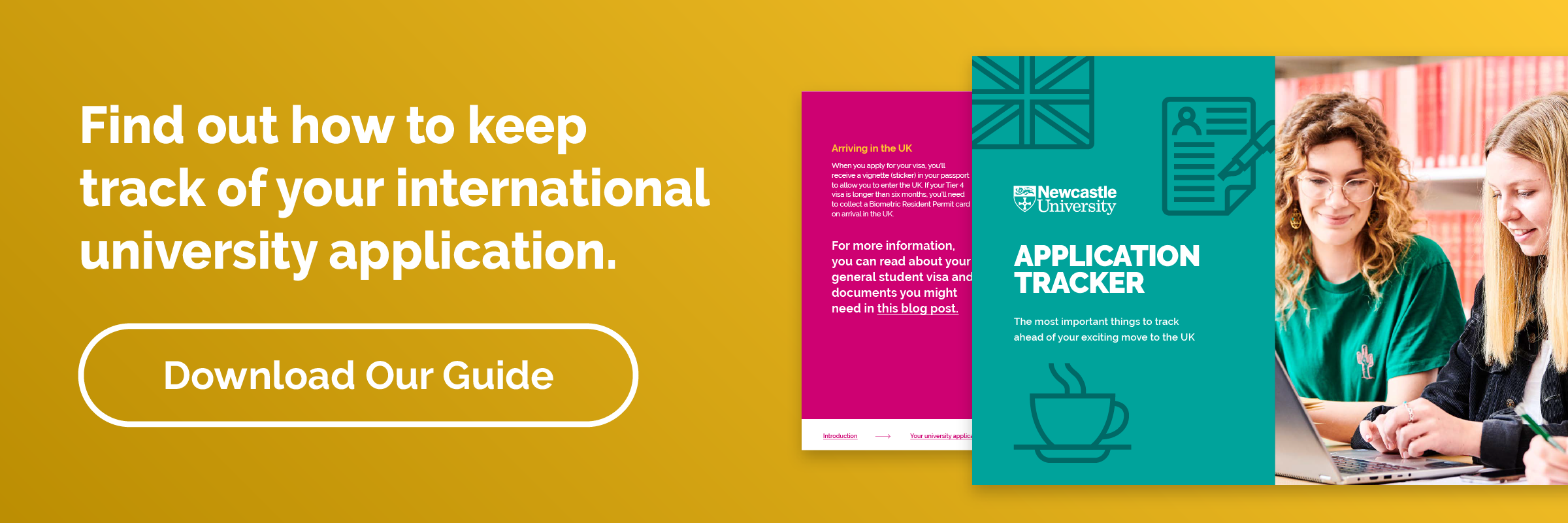When you apply to a UK university, you can submit a minimum of one application and a maximum of five, but you don’t need to use them all. But if you’re applying to study medicine, veterinary science or dentistry, then you’re only allowed to use four choices. If you do apply for one of these courses, then you can still apply for a fifth choice, but it can’t be one of these options.
You’ll need to do this through UCAS. This is a UK-based organisation whose main job is to operate the application process for British universities. Now that you know how many university applications you can make, here are some helpful tips on making sure your application is as good as possible.
- Start the process early and don’t leave it to the last minute
- Do course research so you’re happy with your options
- Keep working on your personal statement
- Get more than one person to review your application before submitting

Start the process early and don’t leave it to the last minute
Find out when the deadlines are to submit your applications and then create a plan to have everything ready in advance.
The last thing you want is to rush the day before the deadline and risk leaving out anything important that will help your application. Starting the process in advance gives you so much more time to prepare and make your application stand out.
It means there will be fewer mistakes and you can keep improving your application without worrying about a thing. Although your application will be considered equally, it’s nice to know that you put a lot of time and effort into what’s clearly a big stage in your life.
Do course research so you’re happy with your options
It seems like an obvious tip, but the decision isn’t always easy when you consider that there are over 37,000 courses on offer through UCAS alone. Or, you can search through a list from Newcastle University directly.
Consider what you’re most passionate about, especially as the courses you’re applying for should be referenced in your personal statement. You can only write one personal statement. It’s much easier to write an amazing statement if you’re applying to similar courses.
Do your research and see the modules you’ll be taking in each course to find what interests you the most. This will help you in the long-term as it shows you took time out to engage in the application process. Plus, university tutors like to see that potential students are genuinely interested.
It’s also a good chance to see how realistic your expectations are. Do your predicted grades meet the requirements of the courses you’re interested in? This is why it’s good to start the process early. It gives you time to search for different courses and see the entry requirements for each one.
Keep working on your personal statement until you’re happy
Don’t just submit the first draft of your personal statement. It’s the perfect opportunity to truly express yourself and show the universities what you’re interested in and what you’re like as a person.
You might think of new, amazing ideas as each day passes. This gives you time to go back and amend your personal statement to add these new ideas so that it’s better than your last draft.
Also, remember that you’ll have a maximum limit to write your personal statement. So don’t add in too much that all of your plans don’t fit in, and don’t leave it too short either.
Here’s a rough guide on what could be good to include in your personal statement:
- explain why you want to study the course at university - but don’t reference any university by name as they’ll all see the same personal statement!
- highlight your academic background, especially qualifications relevant to the course you’re applying to study
- show your interest with the subject that’s not limited to the classroom, such as books you enjoy, events you’ve attended etc
- highlight any relevant work experience or volunteer work
- don’t forget to include your hobbies and interests, but make sure they’re relevant and the section is brief
- conclude your personal statement with some key points you’ve discussed while talking about any future aspirations you have
As you can only submit one, it’s easier to create if you’re applying to study courses that are quite similar. If they’re very different, it can be hard to create one personal statement that shows enough enthusiasm for all of the courses.
However, you have the option to send a second personal statement. But this needs to be sent directly to universities. This is something institutions like Newcastle University encourage.
By starting the process early, you'll have so much more time to create the most amazing personal statement that the admissions team will love to read. Remember, it’s not a race.
Take your time, think of new ideas, continue improving it and only submit it when you’re completely happy with the final version.
Get more than one person to review your application before submitting
Teachers, friends or even family members - get as many people as you can to review your application. You’ll work on your university application a lot, so it’s always good to have somebody else check it. Make sure it’s someone who hasn’t seen it before so they can offer new and honest opinions. They might spot a mistake that you didn’t see.
They might help you come up with new ideas, give suggestions you may have forgotten about or even find some small errors that you can fix before submitting.
Having your loved ones check your application means you’ll get honest replies. Plus, they’ll tell you if you’ve described yourself correctly or if you can do a better job of making yourself stand out.
Teachers can also help you. For example, they might be able to improve the academic side of your university application to really impress the tutors that will see it.
Submitting your university applications is both important and exciting, as it’s the first start towards an exciting journey. To make the move to a UK university as easy as possible, there are three other applications you should know about...
Make sure everything is on track before your exciting move
Along with your Newcastle University application, you should be aware of student visas, your finances and accommodation as well. By having these tracked and completed, you’ll be able to experience the UK and everything it has to offer - from the culture to amazing sights.
To help with that, we’ve created a free application tracker for you to download. It features information on everything we’ve mentioned above to help you stay on track. Get your copy using the link below.
